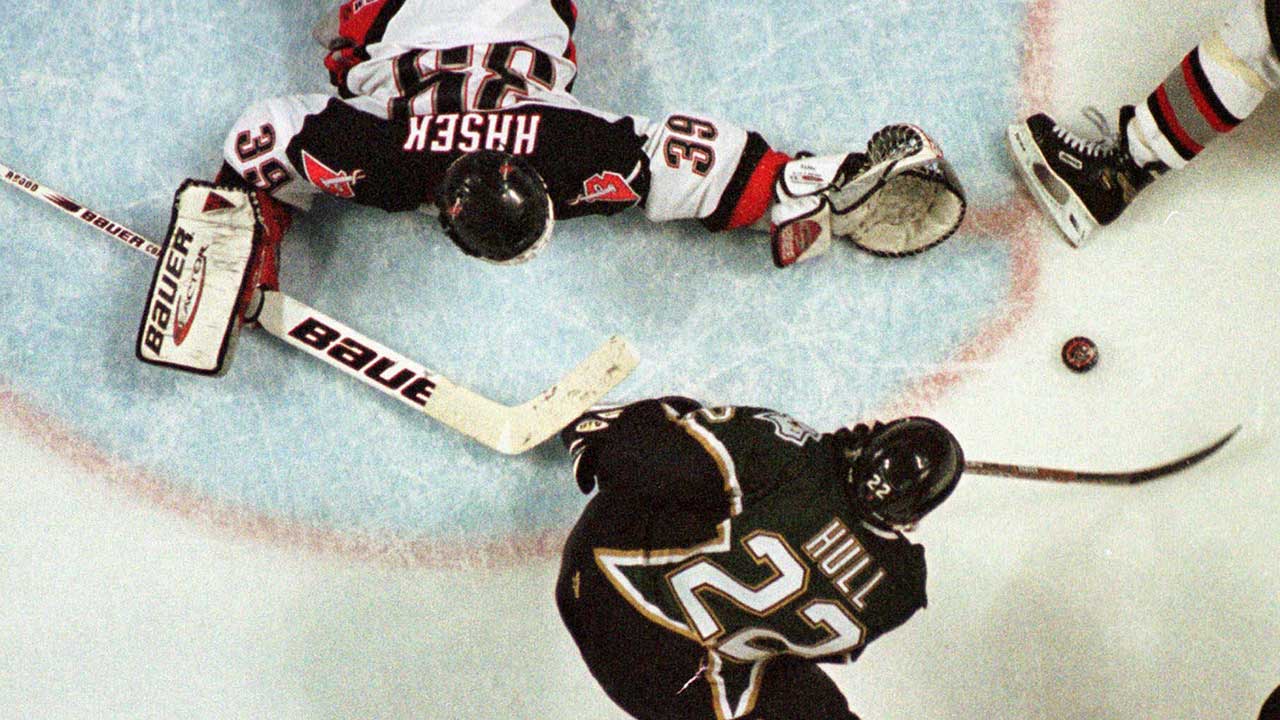When the NHL general managers meet next week, goaltender interference figures to be a focal point of the discussion.
On last weekend’s Headlines segment during Hockey Night in Canada, Chris Johnston reported that one point for the league will be to relay a message that it’s not OK with the current level of discourse from coaches and GMs in the media about the rule and review process.
“We’ve been talking for a while about how this issue will be discussed but I think there’s going to be another pushback and that comes from Colin Campbell, who runs the NHL’s hockey operations department, who’s going to give the message across that it’s not OK to have the type of criticism we saw from [Toronto Maple Leafs coach] Mike Babcock [earlier this week],” Johnston said.
Campbell joined Hockey Central at Noon on Friday to talk about goalie interference reviews, and was asked about the league’s stance to keep that level of disagreement out of the press.
The main point of contention is that the current rule and process is in place because teams pushed so hard for it in the first place.
“Coaches and managers were requesting that we extend video review in a number of places in the game and we settled on two goal situations,” Campbell said. “Not puck over the glass or other areas, but just situations where goals occurred.
“Having said that, I reminded the managers at our Montreal meeting in November that it was their request … I pointed out in the GM minutes over the course of five years when they kept requesting it and we would warn them, particularly Gary Bettman: ‘Be careful what you wish for guys.’ Now it’s our problem and our fault that these things are difficult.” [sidebar]
At all-star weekend in Tampa Bay, the NHL met to discuss goalie interference as well, and came out with a different focus on the rule. Bettman, Campbell and others thought the league had swung too far one way and had become “too sensitive about contact in the crease.” Since then, fewer goals have been called back due to minor contact. But many believe there is still a problem with the process.
The question is if the league could leave the GM meetings next week with a different protocol. Currently, while the referees in-game can get on the phone with the Situation Room in Toronto and review the interference after goals to make the call themselves, some think the final decision should switch to the league office.
This would theoretically make calls in every game more consistent, since it would be the same group coming to the conclusions and not the various referees throughout the league.
“I’m sure we could change the protocol, it’s not in the rulebook,” Campbell said. “I think if everyone agrees we could change the protocol.”
Campbell continued: “We did it with the offsides. We said we get the final call in Toronto. We still discuss it with the linesmen and we haven’t overruled each other even though we have the power to do that now. They’re experts at calling offsides, they’re experts at calling possession and control — tag up — so we lean on them. The only thing we have to do in these two situations, we have to get this process moving along. I hate the three-, four-, five-minute break, someone has to think about the flow of the game.”
Whatever comes out of the meetings next week, the league, referees, players, coaches, GMs and fans all have the same fear that a pivotal moment in the Stanley Cup Playoffs will turn controversial because of a goalie interference review gone bad.

The league is still haunted by the OT goal in the 1999 final between the Buffalo Sabres and Dallas Stars, when Brett Hull clinched the Stanley Cup even though his foot was in the crease. At the time, just being in the crease was enough to overturn a goal and it was a frustrating process for everyone all year before culminating in that infamous moment. The league eventually did away with the rule altogether.
“Certainly everybody says, ‘Geez, we don’t want this in a Game 7,” Campbell said.
[relatedlinks]









